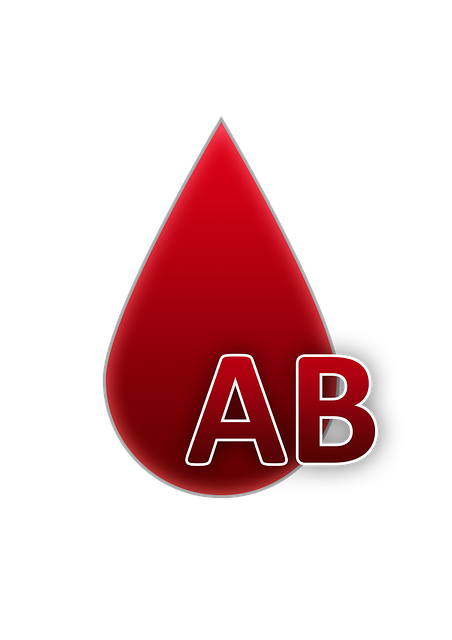A cholesterol blood test is a powerful diagnostic tool that assesses LDL ('bad' cholesterol), HDL ('good' cholesterol), and total cholesterol, helping individuals make informed decisions about diet and lifestyle changes. Personalized tests consider unique risk factors like age, family history, and medical conditions for tailored insights into cardiovascular health. This approach enables early detection of issues, allowing proactive measures to prevent or manage heart diseases effectively. After a review of medical history and a blood sample analysis, results are discussed with a healthcare provider within a week or two.
Personalized cholesterol blood tests are transforming healthcare, offering a tailored approach to managing your health. Unlike standard tests, these provide specific insights into your unique cholesterol profile, factoring in individual risk factors. This innovative method allows for targeted interventions, promoting better cardiovascular health.
In this article, we’ll explore the fundamentals of cholesterol, emphasize the significance of personalized testing, detail its advantages, and guide you through the process, ensuring a clear understanding of what to expect.
- Understanding Cholesterol: The Basics
- Why Personalization Matters for Your Cholesterol Test
- Benefits of a Personalized Cholesterol Blood Test
- What to Expect During and After Your Test
Understanding Cholesterol: The Basics
Cholesterol is a waxy, fat-like substance found in all cells in your body. It’s essential for building and maintaining cell membranes, producing hormones, and creating vitamin D. However, too much cholesterol in your blood can lead to health issues. This waxy substance comes from two sources: your body produces it in the liver, and you also get it from certain foods, primarily animal products.
A cholesterol blood test is a crucial tool for assessing your cardiovascular health. It measures the levels of low-density lipoprotein (LDL) or ‘bad’ cholesterol, high-density lipoprotein (HDL) or ‘good’ cholesterol, and total cholesterol in your blood. Understanding these numbers can help you make informed decisions about your diet, lifestyle, and any necessary medical interventions to manage your cholesterol levels effectively.
Why Personalization Matters for Your Cholesterol Test
Personalizing your cholesterol blood test is a game-changer in managing your health, especially as everyone’s cardiovascular risk profile is unique. Traditional tests often provide a one-size-fits-all approach, but your specific health needs may vary significantly from others. This is where a personalized test comes into play, offering tailored insights to help you make informed decisions about your diet, lifestyle, and overall wellness.
By considering factors like age, family history, lifestyle choices, and existing medical conditions, healthcare professionals can design a cholesterol screening that goes beyond basic numbers. This individualized approach allows for early detection of potential issues, enabling proactive measures to prevent or manage cardiovascular diseases effectively.
Benefits of a Personalized Cholesterol Blood Test
A personalized cholesterol blood test offers several significant advantages, tailoring healthcare solutions to meet your unique health needs. Unlike standard tests that provide a broad overview, this approach focuses on identifying specific lipid profiles relevant to your individual risk factors. By analyzing various cholesterol types—LDL (low-density lipoprotein), HDL (high-density lipoprotein), and triglycerides—the test delivers actionable insights into your cardiovascular health.
This personalized approach allows healthcare professionals to make informed decisions about lifestyle adjustments and treatment plans. For instance, knowing your specific cholesterol levels can guide diet and exercise recommendations, helping you manage or improve numbers that might be out of optimal range. Additionally, it enables early detection of potential issues, empowering you to take preventive measures and make positive changes before more severe health consequences arise.
What to Expect During and After Your Test
During your cholesterol blood test, a healthcare professional will typically start by reviewing your medical history and current health status to tailor the test to your specific needs. They’ll then take a small sample of your blood, usually from a vein in your arm, using a needle. This process is swift and usually causes minimal discomfort. You may feel a brief sting as the needle pierces your skin, but it’s over quickly. The sample is then sent to a lab for analysis, where specialized tests measure the levels of different cholesterol types in your blood.
After the test, you can expect some light bruising at the injection site, which should dissipate within a few days. Your healthcare provider will reach out with your results, typically within a week or two. They’ll discuss the findings with you, explaining your cholesterol levels and what they mean for your health. This conversation is an essential part of understanding your risks and taking appropriate action to manage your cholesterol, thereby positively impacting your overall well-being.
A personalized cholesterol blood test is a powerful tool for taking control of your health. By understanding your specific cholesterol levels and needs, you can make informed decisions about your diet, lifestyle, and even medical treatments. This tailored approach ensures that you’re not just treating a number but addressing the unique factors contributing to your cardiovascular health. Embrace this proactive step towards a healthier future by discussing personalized cholesterol testing with your healthcare provider today.
